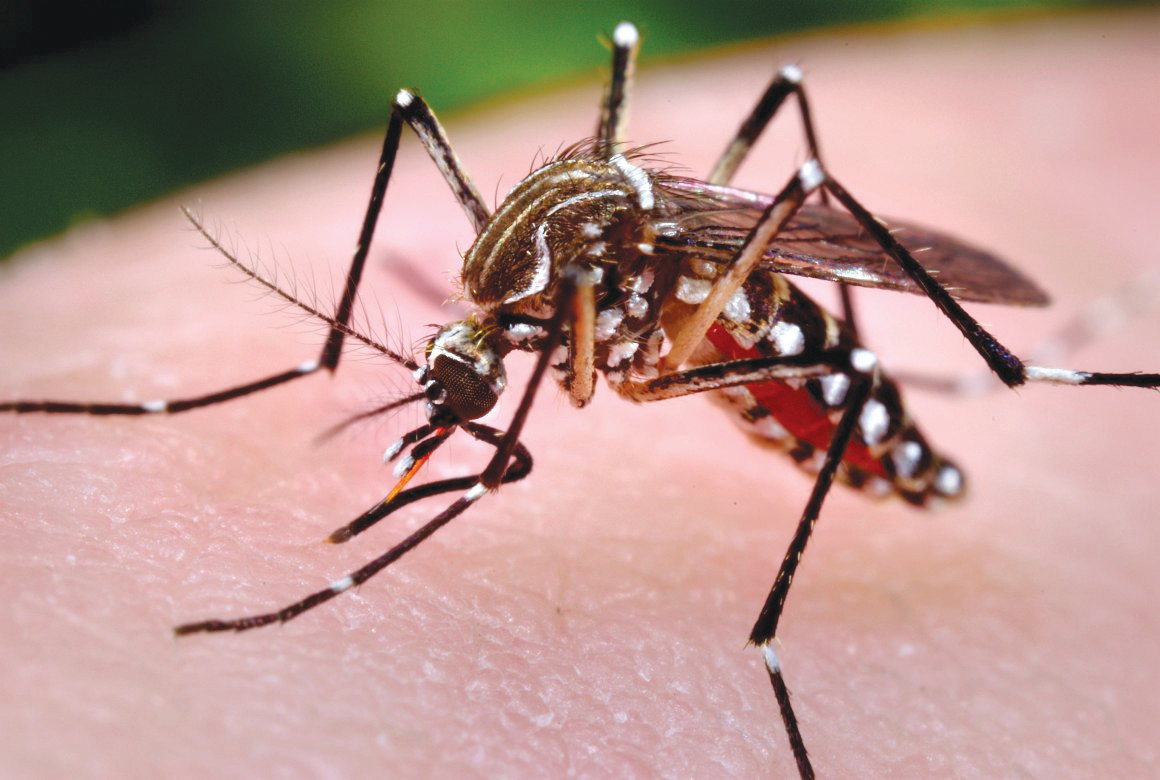Arm yourself with knowledge against Zika virus
In daily updates on almost every news channel and outlet, we hear about the dangers of Zika virus and the cases found in the United States. However, even with this saturation, there is misinformation …
This item is available in full to subscribers.
Attention subscribers
To continue reading, you will need to either log in to your subscriber account, or purchase a new subscription.
If you are a current print subscriber, you can set up a free website account and connect your subscription to it by clicking here.
If you are a digital subscriber with an active, online-only subscription then you already have an account here. Just reset your password if you've not yet logged in to your account on this new site.
Otherwise, click here to view your options for subscribing.
Please log in to continueDon't have an ID?Print subscribersIf you're a print subscriber, but do not yet have an online account, click here to create one. Non-subscribersClick here to see your options for subscribing. Single day passYou also have the option of purchasing 24 hours of access, for $1.00. Click here to purchase a single day pass. |
Arm yourself with knowledge against Zika virus
In daily updates on almost every news channel and outlet, we hear about the dangers of Zika virus and the cases found in the United States. However, even with this saturation, there is misinformation spreading about the virus and its vector, which is an organism capable of carrying a disease pathogen, the mosquito.
First of all, the cases of Zika virus reported in Florida have all been “imported,” meaning someone travelled to an area of active transmission of the disease, caught it and then returned to Florida. The zones of active transmission can be found throughout South America and the Caribbean and there have been other outbreaks in equatorial Africa and Southeast Asia.
Mosquitos breed in water by laying eggs above the water line and then the larvae hatch and develop within the water before turning into a pupae and emerging as an adult mosquito. The adult mosquitos actually feed mainly on plant sugars and other insects who feed on plant sugars for energy. Only the female mosquito bites animals and uses the blood to help with egg development. During these bites, diseases from a previously bitten animal can be spread to a new host.
However, to this date, Zika virus has not actively spread from human to human through mosquitos in the United States but there was one case where it was transmitted sexually in Texas. So, even though there are people infected with Zika in the states, it is not being actively transmitted from person to person.
The Zika virus is spread through only two species, the Yellow Fever Mosquito (Aedes aegypti) and possibly the Asian Tiger Mosquito (Aedes albopictus). These species originated in Africa and Asia respectively and have been spread worldwide through shipping and travel. However, there is no such thing as a “Zika Mosquito.”
With Zika Virus and other mosquito carried diseases, the best offense is a good defense, by protecting yourself and minimizing their populations.
When outside, wearing long sleeves and pants can help to minimize the risk of you being bitten as well as using insect repellants such as those containing DEET or citronella oil. These are available as sprays, wipes, sticks, foams and lotions but it is important to read and follow directions for application before use.
Evidence has shown that some repellants such as those that emit sound, bug patches and bracelets, and bug zappers are not effective against mosquitoes. Also, home remedies such as eating garlic, bananas, or Vitamin B will not repel the pests.
You can also control populations near your home by reducing breeding grounds for the mosquito. Many mosquito species tend to breed in containers that hold moisture so it is important to limit any objects that hold water. Water that cannot be dumped should be treated with mosquito dunks, which contain a bacteria that attacks the larvae in the water. Standing water, such as bird baths, should also be dumped at least once a week and rain barrels or water collection containers should be covered with a fine screen to stop the female mosquitos from laying eggs. Finally, make sure to clean your gutters and recycle used tires you may have around your property.
Want someone to answer a specific plant question for you? Go online to http://clay.ifas.ufl.edu and under the heading “Horticulture” (left hand side of page) left click on “Ask a Master Gardener” and a reply will be sent plus a hyperlink to the appropriate University of Florida Fact Sheets. Please send us a digital picture of the problem. To read past articles that might help you with seasonal problems and to learn about upcoming Extension Programming in our area go to our website at UF/IFAS Clay County Extension.








